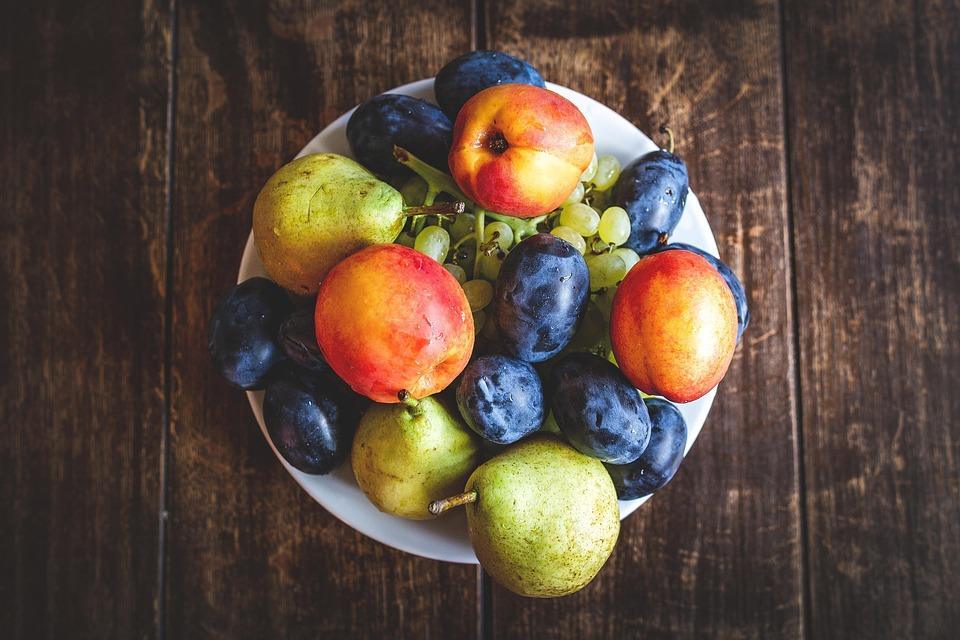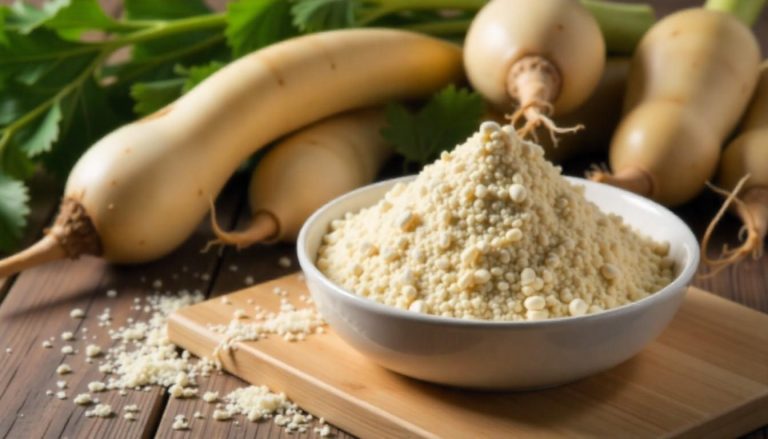Did you know that what you eat can significantly impact your hormone balance? It’s true! The foods we consume can either help or hinder our body’s hormonal functions. As someone who’s dabbled in nutrition and wellness for a while, I’ve found that certain superfoods can be particularly effective in promoting hormonal harmony. Let’s dive into five of these powerhouse foods and how they can help balance your hormones naturally.
Contents
1. Flaxseeds: The Fiber and Omega-3 Powerhouses
Flaxseeds are tiny but mighty when it comes to hormone balance. They’re rich in lignans, a type of phytoestrogen that can mimic estrogen in the body and help regulate hormonal levels. This is especially beneficial for women experiencing menopause or hormonal fluctuations.
Benefits:
- Rich in Omega-3 Fatty Acids: These are essential for reducing inflammation, which can wreak havoc on hormonal balance.
- High in Fiber: This aids digestion and helps eliminate excess estrogen from the body.
Drawbacks:
- Digestive Issues: Some people may experience bloating or gas if they consume too many flaxseeds at once. It’s best to start small and gradually increase your intake.
- Hormonal Sensitivity: If you have estrogen-sensitive conditions, consult your doctor before adding flaxseeds to your diet.
How to Use:
You can sprinkle ground flaxseeds on oatmeal, incorporate them into smoothies, or bake them into muffins. Just a tablespoon a day can make a difference!
2. Avocados: Creamy and Nutrient-Dense
Avocados are not just a trendy toast topping; they’re a fantastic source of healthy fats that play a crucial role in hormone production. They contain monounsaturated fats, which are essential for keeping your hormones balanced.
Benefits:
- Rich in Vitamins: Avocados are loaded with vitamins E and B, which are vital for hormone regulation and energy production.
- Blood Sugar Regulation: Their fiber content helps stabilize blood sugar levels, which is crucial for maintaining hormonal balance.
Drawbacks:
- Caloric Density: While avocados are healthy, they are also calorie-dense. Moderation is key if you’re watching your weight.
How to Use:
Enjoy them sliced in salads, blended into smoothies, or mashed on whole-grain toast. You can even make a delicious avocado dip!
3. Berries: Antioxidant-Rich Delights
Berries, such as blueberries, strawberries, and raspberries, are not only delicious but also packed with antioxidants that can help combat oxidative stress—an imbalance that can disrupt hormonal health.
Benefits:
- High in Fiber: This helps regulate insulin levels, a hormone that plays a critical role in metabolism and energy use.
- Rich in Antioxidants: Berries help to reduce inflammation, potentially alleviating symptoms associated with hormonal imbalance.
Drawbacks:
- Sugar Content: While natural, berries still contain sugars. For those with insulin sensitivity, it’s best to consume them in moderation.
How to Use:
Add them to your breakfast cereal, blend into smoothies, or enjoy them as a snack. They’re versatile and can be easily incorporated into various meals.
4. Cruciferous Vegetables: Nature’s Detoxifiers
Cruciferous vegetables like broccoli, cauliflower, and kale are fantastic for hormonal balance due to their high content of indole-3-carbinol, a compound that helps the body metabolize estrogen.
Benefits:
- Detoxification Support: These vegetables support liver function, which is crucial for detoxifying excess hormones from the body.
- Nutrient-Dense: They are low in calories but high in vitamins C, K, and folate, contributing to overall health.
Drawbacks:
- Thyroid Interaction: For those with thyroid issues, consuming large amounts of raw cruciferous vegetables can interfere with thyroid function. Cooking them can mitigate this effect.
How to Use:
Steam, roast, or stir-fry these veggies, or throw them into salads for added crunch and nutrients. They’re incredibly versatile!
5. Nuts and Seeds: Nutrient-Dense Snack Options
Nuts and seeds, particularly walnuts and pumpkin seeds, are packed with nutrients that support hormone health. They are rich in magnesium, zinc, and healthy fats, all of which play a role in hormonal balance.
Benefits:
- Hormone Regulation: Magnesium helps regulate cortisol, the stress hormone, while zinc is crucial for testosterone production.
- Satiety: They’re filling, which can help prevent overeating and stabilize blood sugar levels.
Drawbacks:
- Portion Control: Nuts are calorie-dense, so it’s important to keep portions in check to avoid excess calorie intake.
How to Use:
Snack on a handful of nuts, toss them into salads, or blend them into smoothies. They add a satisfying crunch and boost nutritional value.
FAQs
1. Can I eat these superfoods every day?
Absolutely! Incorporating these foods into your daily diet can be beneficial, but variety is key. Balance them with other whole foods for optimal health.
2. How long will it take to see results?
Changes in hormone balance can vary from person to person. Some may notice improvements within weeks, while others might take longer. Consistency is essential!
3. What if I have allergies to nuts or seeds?
If you have allergies, it’s best to avoid those specific foods. Focus on the other superfoods listed, and consider consulting a healthcare provider or nutritionist for alternatives.
4. Are there any specific recipes that include these superfoods?
Yes! You can create a delicious smoothie with spinach (a cruciferous vegetable), berries, a tablespoon of flaxseed, and some almond milk for a refreshing and hormone-balancing treat.
Conclusion
Balancing hormones naturally is all about making mindful choices about what we eat. Incorporating superfoods like flaxseeds, avocados, berries, cruciferous vegetables, and nuts can help support hormonal health. Remember, though, that everyone’s body is different. What works for one person might not work for another.
As you explore these foods, consider keeping a food journal to track how they make you feel. It’s all about finding the right balance for your unique body and lifestyle. And let’s be real—eating healthily doesn’t have to be boring. With these superfoods, you can enjoy delicious meals while nurturing your hormonal health.
This article is for educational purposes only and is not a substitute for professional medical advice. Always consult a qualified healthcare provider before making changes to your health routine.
References
- Messina, M. (2016). Flaxseed and its health benefits. Journal of Nutritional Biochemistry, 36, 1-7. https://doi.org/10.1016/j.jnutbio.2016.01.008
- Harvard Health Publishing. (2021). The health benefits of avocados. Retrieved from https://www.health.harvard.edu/staying-healthy/the-health-benefits-of-avocados
- NIH. (2020). Berries and their health benefits. Nutrients, 12(2), 1-13. https://doi.org/10.3390/nu12020477
- Cleveland Clinic. (2022). The benefits of cruciferous vegetables. Retrieved from https://health.clevelandclinic.org/cruciferous-vegetables-benefits/
- Aune, D., et al. (2019). Nut consumption and risk of cardiovascular disease and all-cause mortality: a systematic review and meta-analysis of prospective studies. BMC Medicine, 17(1), 1-19. https://doi.org/10.1186/s12916-019-1362-6
Get Your FREE Natural Health Guide!
Subscribe now and receive our exclusive ebook packed with natural health tips, practical wellness advice, and easy lifestyle changes, delivered straight to your inbox.





